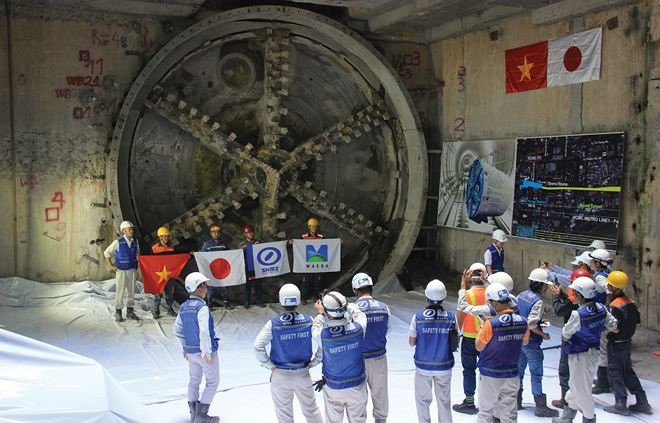HCM City (VNA) - A host of investmentopportunities awaits developers in Ho Chi Minh City where authorities plan todevelop underground spaces.
The municipal Department of Planning andArchitecture has said by next year plans for subterranean development would beready with a focus on the heart of the city and the Thu Thiem new urban area indistrict 2.
On top of the list is the underground stretch ofthe metro No 1 line between the Ben Thanh and Opera House stations andunderground walking streets below Le Loi street and the September 23 Park in district1, according to the department.
Besides, there will be more than 10 otherunderground projects along the metro line.
According to Le Hoang Chau, chairman of the HCMCity Real Estate Association, underground projects will offer a new investmentopportunity to investors. To modernise, it is necessary to developunderground spaces. It is the global trend and will profit the economy.
So in the next few years the underground propertysegment would be hot since it offers an ideal location for retailers and foodand beverage outlets, he said.
Su Ngoc Khuong, director of Investment SavillsVietnams, said underground construction is an essential feature of compactcities, a new urban design concept.
This is a trend in modern cities to maketransportation convenient for citizens, according to Khuong.
Underground development is an irreversible trendin HCM City that planners and investors are targeting thanks to its financialpotential. When underground spaces are identified, there will be a newsegment in the city’s real estate market.
But experts have warned that though the market hasgreat potential it will not easily attract investors.
Chau said this was due to the high costs involved.He pointed to the proposed underground parking lots at Le Van Tam Park, TrongDong Theatre and Hoa Lu Stadium, which had stalled because of funding problems.
A project becomes three times as costly when itmoves below ground, he said, adding that to encourage investors, the cityshould have clear policies on land-use rights and land tax and offer financialsupport.
Another difficulty that dissuades investors fromundertaking construction below ground is lack of data. Developers oftendo not know what is under a road. In some cases, after digging a road,investors have found cables and water pipes and have had to stop construction.
Khuong said this was still a new segment in thecountry and so developers were cautious. While foreign developers havean edge now, local rivals could study other markets and catch up with them, hesaid.
The competition was bound to be tough but thatwould be a positive sign for the real estate market, he said.-VNA






























